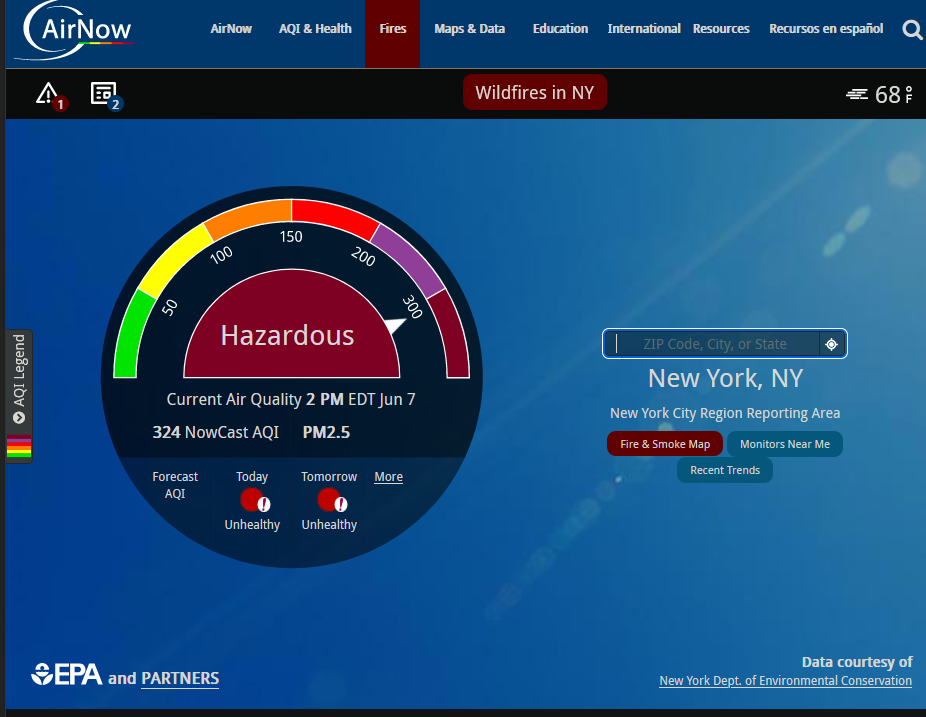NEW YORK (AP) — Smoke from Canadian wildfires poured into the U.S. East Coast and Midwest on Wednesday, covering the capitals of both nations in an unhealthy haze, holding up flights at major airports and prompting people to fish out pandemic-era face masks.
While Canadian officials asked other countries for help fighting more than 400 blazes nationwide that already have displaced 20,000 people, air quality with what the U.S. rates as hazardous levels of pollution extended into central New York. Massive tongues of unhealthy air extended as far as Virginia and Indiana, affecting millions of people.
“I can taste the air,” Dr. Ken Strumpf said in a Facebook post from Syracuse, New York, which was enveloped in an amber pall. The smoke, he later said by phone, even made him a bit dizzy.

In Baltimore, where officials warned residents to stay indoors when possible and limit outdoor exertion, Debbie Funk sported a blue surgical mask as she and husband Jack Hughes took their daily walk around Fort McHenry, a national monument overlooking the Patapsco River. The air hung thick over the water, obscuring the horizon as distant ships pushed slowly through the haze.
“I walked outside this morning and it was like a waft of smoke,” said Funk, who said the couple had considered skipping the walk but wanted some exercise. The two planned to stay inside later Wednesday.
Canada's wildfire season started early this year and accelerated very quickly, exhausting firefighting resources across the country, Canadian Interagency Forest Fire Centre spokesperson Jennifer Kamau said.
Smoke from the blazes in various parts of the country has been lapping into the U.S. since last month but intensified with a recent spate of fires in Quebec, where more than 100 fires were burning and considered out of control Tuesday.
The largest town in Northern Quebec — Chibougamau, population about about 7,500 — was evacuated Tuesday, after another Quebec community was left to burn Monday, drawing the ire of local residents.
Quebec Premier François Legault said Monday that authorities had no choice because the fire around the hamlet of Clova was too intense to send in water bombers. That remained true Tuesday, he said, but he noted that no homes had burned.
Kamau said more than 950 firefighters and other personnel have already arrived from the U.S., Australia, New Zealand and South Africa, and crews from Costa Rica will be arriving soon.
Across the border, the effects of the blazes blotted out skylines and irritated throats.
“It’s sunny, but there’s no sun,” Michele Kluk said as she emerged from a Target store in Mechanicsburg, Pennsylvania, with “a bunch” of allergy medication in response to the air quality.
